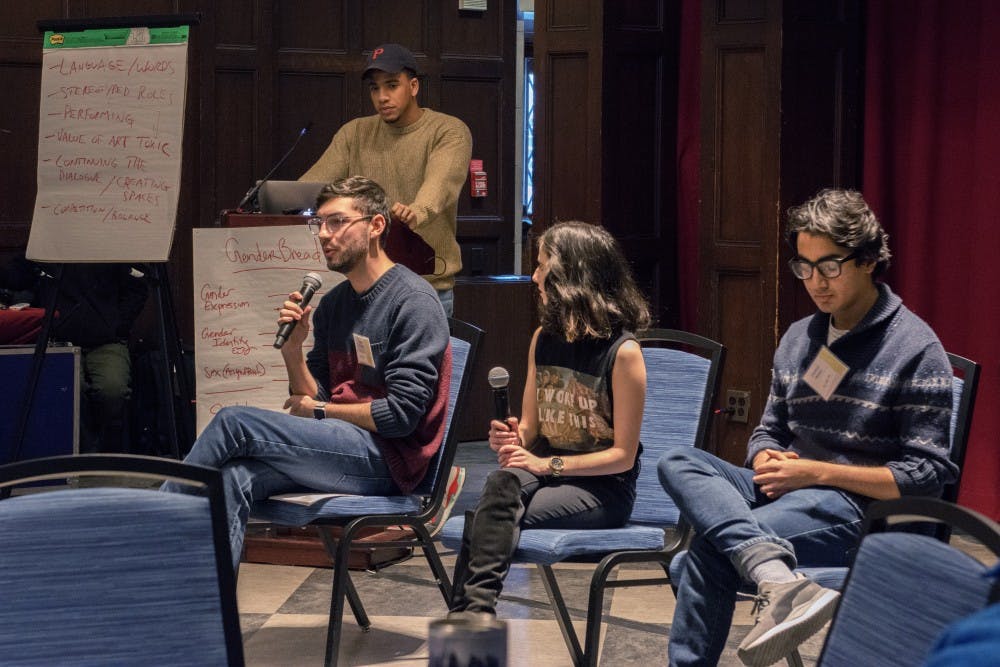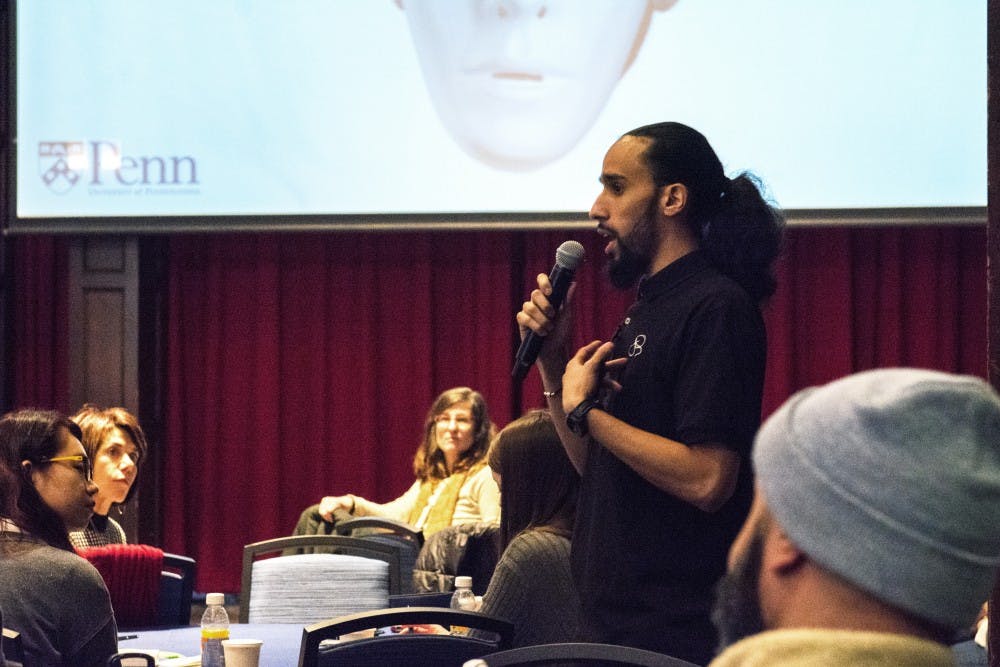
At Penn's first Men & Masculinities Summit, Penn students, administrators, and high schoolers gathered to discuss issues relating to men's gender identity on Feb. 3.
The conference, which took place in Houston Hall, sought to educate people of all backgrounds on the toxic effects of masculinity and provide a safe space to discuss its impact.
The conference comes a week after news broke of former trustee and College graduate Steve Wynn's reported decades-long pattern of sexual misconduct and just days after Penn announced its decision to remove Steve Wynn’s name from Wynn Commons, revoke his honorary degree, and remove a scholarship in his name. The same email announced that the University would also be revoking Bill Cosby's honorary degree.
“We started planning much of this before a lot of these conversations became national focal points, so I’m glad that we have this ready,” said Malik Washington, the associate director of Sexual Violence Prevention & Education.
Washington said that the conference consolidates discussions about masculinity that were already taking place around campus.
“I think there’s also a lot of men who want to be engaged and want to be involved and they just don’t know how yet," Washington said. "I hope that this summit provides those opportunitiesand knowledge to do that."
Josué “JQ” Quiñones, a public speaker and life coach, opened the event by speaking about many of the issues associated with masculinity. He explained that Penn Face is “a mask [students] put on” to cover up their insecurities because they feel pressure to perform at a certain level. JQ continued that masculinity, which he refers to as “mask-u-linity,” works in a similar way in that people often feel pressure to behave in a certain way, at a certain level.
“I wasn’t expecting that aspect to be talked about a lot,” said Wharton freshman Kyle Whiting. “I think that’s definitely a problem.”

Photo of Josué “JQ” Quiñones from Mowa Li
Whiting attended the summit as a part of the Interfraternity Council’s New Member Education program, which was recently changed to allow members of Greek life to choose which events to go to as part of their training. The Men & Masculinities Summit was one of the approved programs that fraternities may send members to.
After attendees of the summit listened to JQ’s opening speech, they broke into small groups to discuss specific issues. Experts led presentations and workshops such as "Men and Mental Health," "Intimate Partner Violence, Gender & Race," and even a discussion on the themes of manhood and race in Jay Z's 4:44 album.
Participants included people of all genders, not just men. Dental graduate student Hilary Warren said she was surprised to find that in the small groups, “sometimes the women had more to say about the topics than the men in the room.”
Attendees received evaluation forms to provide feedback on the sessions they participated in, for similar events in the future. “We have a lot more work to do on this campus and in our communities outside of campus,” Washington said.
The summit was hosted by many organizations, including Vice Provost of University Life, Penn Violence Prevention, Office of Fraternity & Sorority Life, Office of the Chaplain, Makuu, PAACH, LGBT Center, Penn Women's Center, and Campus Health. Campaign 4 Community and the Graduate Student Center co-sponsored the event.
“I didn’t realize how much pressure men feel from society to perform and act a certain way and appear a certain way,” Warren said. “I didn’t realize how much of an effect it has on them.”
The Daily Pennsylvanian is an independent, student-run newspaper. Please consider making a donation to support the coverage that shapes the University. Your generosity ensures a future of strong journalism at Penn.
Donate







